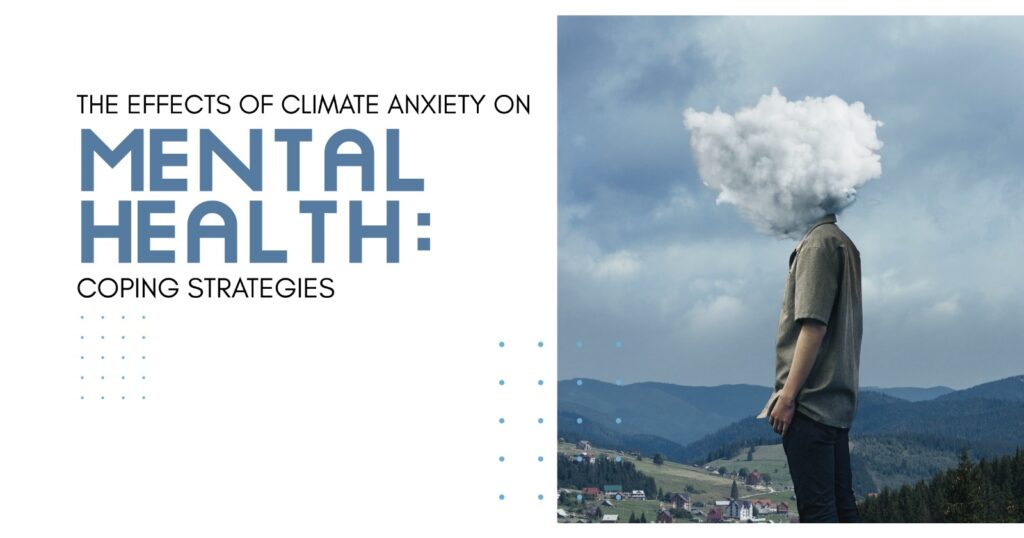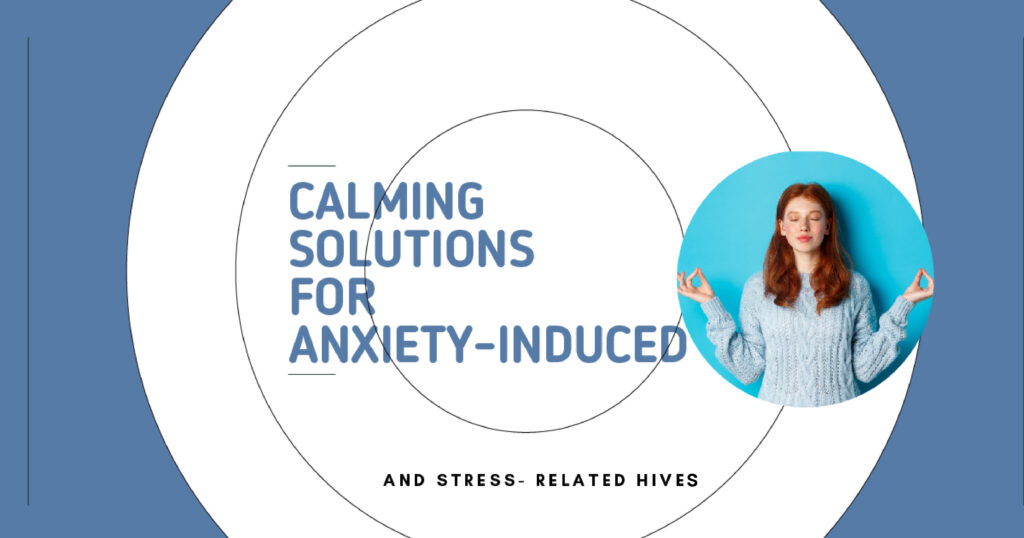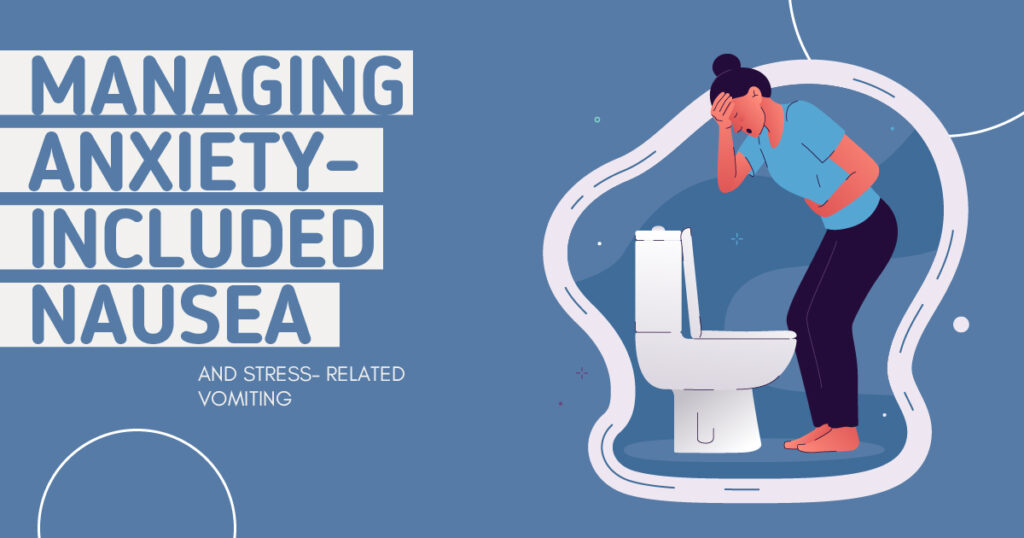Climate change has been one of the defining challenges of our era, touching upon the environment and the mental well-being of people on this globe. Constantly exposed to stories about wildfires, flooding, and a heightened temperature, it is but natural that many individuals develop what is now termed “climate anxiety.”
Essential Takeaways:
- Climate Anxiety is growing. It is a severe threat, especially for the younger generation and vulnerable regions, which calls for attention to mental well-being.
- Coping is Important. Self-care techniques, such as mindfulness, balanced information exposure, and taking action about the environment, can help people regain a sense of powerlessness.
- Policy and Community Matter. Governments and communities must promote climate resilience and provide mental health services to deal with eco-anxiety.
The increasing sense of tension, apprehension, or hopelessness over the climate crisis. For many, it is a debilitating anxiety that can desecrate the very fabric of their everyday life and influence their mental well-being. Let’s see precisely what climate anxiety is, how it impacts your mental health, and, most importantly, how to cope with it in this post.
What Is Climate Anxiety?
Climate anxiety, otherwise known as eco-anxiety, is the fear and worry that people perceive based on climate change impacts. It is the emotional distress caused by the consciousness of the current and future environmental crises, including global warming, biodiversity loss, and extreme weather situations.
Unlike other traditional anxiety types, which perhaps can be caused by personal experiences, climate anxiety is based on global, large-scale issues. Sometimes, this feels overwhelming because complex problems are out of everyone’s hands.
San Diego Mental Health
Who Experiences Climate Anxiety?
It is an anxiety that one who is conscious of the climate crisis can undergo, though it is more frequent among specific groups. The youth, especially Generation Z and Millennials, are the most vulnerable groups to climate anxiety since they fear the future of the Earth. They are referred to as residents of vulnerable areas whose living places are prone to catastrophic climate-related disasters, such as hurricanes, wildfires, and floods.
It is not only immediately devastating but also anxiety-provoking for extended periods over safety and well-being. Environmental activists and climate science professionals will undoubtedly be attracted to this battle against climate change. Hence, emotional exhaustion will dawn from seeing the enormity of the problem and the slow pace of global action.
Climate Anxiety Vs. Eco-Anxiety: Is There a Difference?
Although these terms, climate anxiety and eco-anxiety, are sometimes used synonymously, some make a distinction. Climate anxiety concerns fears about climate change, specifically global warming and its direct effects, such as rising sea levels and extreme weather.
Eco-anxiety may encompass much larger environmental concerns, including pollution, deforestation, and species extinction. Both of these kinds of anxiety trace their roots back to a profound concern for the environment, and both are potentially powerful influences on mental health.
The Effects of Climate Anxiety on Mental Health
If it is not checked, climate anxiety can have terrible effects on mental health. That is not to say being mindful of the environment is wrong; however, constant worry may evolve into emotional and psychological distress on changes in the habit.

Psychological Impact
Climate anxiety can come about in different ways:
- Chronic stress or anxiety. Endless worries about the planet’s future can create a nagging fear. The concern can be intensely all-consuming and prevents one from concentrating on the day-to-day.
- Feelings of helplessness. The massive scale of the climate crisis leaves people feeling powerless. When the efforts globally appear inadequate, it becomes easy to lose hope.
- Eco-anxiety. The constant flooding of bad news about the environment may weigh in and make you feel overwhelmed. They may become desensitized or emotionally detached to cope with the distress.
Effect on Daily Activity
Climate anxiety impacts a person’s daily activities, including the following:
- Lack of interest. An environment-related discussion may irritate someone, especially when friends or family members do not share the same anxiety. It can, therefore, make one feel uninvolved or angry.
- Work and Academic Performance. In business and campus life, those suffering from chronic climate anxiety find it difficult to be focused in terms of their work or studies. They suffer from lowered productivity, burnout, or existential fear about future careers.
- Decision-making. The sufferer may be unable to make long-term decisions such as having children, investing in a home, or making travel plans. He or she may fear the moral and environmental consequences of such decisions.
Physical Symptoms Related to Climate Anxiety
As is the case with other anxiety disorders, climate anxiety leads to various physical symptoms as well, such as:
- Fatigue. Chronic stress and anxiety can make the body feel tired.
- Sleep disorders. Such a person may not sleep, and even when he does, he has nightmares about climatic catastrophes.
- Severe Racing Heart and Panic Attacks. In severe cases of anxiety, there are physical symptoms like a racing heart and, in some cases, a panic attack when such alarming climate change news is heard.
Why Are We Feeling Climate Anxiety More Than Ever?
In recent times, the anxiety of climate change has contributed to many factors. Today, people are exposed to so much information that they tend to understand the issues affecting the environment.
The Role of Media and Social Media
The media is one of the principal agencies through which we understand our perceptions regarding climate change. One cannot avoid knowing, but continuous bad news blocks people’s emotional strength. Websites such as social media sites flood us with stories about climatic upheavals and governments’ inaction regarding climatic degradation. This continuity of flow becomes a sort of feel of despondency or doomscrolling.
Increased Natural Disasters and Climatic Events
Climate change has increased the frequency and intensity of natural disasters. Wildfires, floods, and hurricanes are no longer rare but happen frequently. Observations of such disasters, whether first-hand experiences or through media, heighten anxiety levels. The human cost and attendant damages brought about by such calamities serve as a straightforward reminder of this climate crisis.
Policy Uncertainty Role
Of course, others worry because they believe their governments and corporations are not doing enough to help mitigate climate change. Policy inaction or a slow pace of change may exacerbate feelings of hopelessness and increase anxiety even further. If people no longer believe that their leaders are working toward a better future, it is hard to keep holding on to hope for the future.
Coping Strategies for Climate Anxiety
Climate anxiety can be overwhelming at times, but there are ways to control it. There is a progression of coping strategies that could help manage the emotions and act upon them without getting overwhelmed by fear. This article is careful to remember to provide strategies. Keep Informed, but Take Breaks
Knowing the climate change stories is essential, but dwelling on bad news all the time can further worsen anxiety. Be wise and regulate how you use the news to maintain balance; set specific times to check for news and control the time spent interacting with social media. You can also follow accounts concentrating on good environmental news and success stories.
San Diego Mental Health
Take Environmental Action
Action can be one of the best antidotes to feelings of powerlessness. Doing environment-friendly things will give an identity and reduce anxiety. Even single acts or steps, like recycling, lessening waste, or supporting renewable energy, can make a difference. Environmental groups in your community or helping plan and participate in community clean-up projects can also give a feeling of empowerment and togetherness.
Build a Support Network
Share your concerns with others. This may be through joining and participating in climate advocacy groups or online forums, where there is a nonjudgmental space to express your feelings and receive support. Knowing that the feeling you’re having is something that others face can sometimes reduce feelings of isolation about climate anxiety.
Practice Mindfulness and Grounding Techniques
Mindfulness will help you live at the moment and handle overwhelming emotions. Techniques for managing stress and anxiety include meditation, deep breathing techniques, journaling, and grounding exercises that involve focusing on your surroundings or engaging in physical activities like gardening.
Seek Professional Help When Needed
If you believe that climate anxiety is contributing to psychological problems, then a professional counselor could be what you need. Cognitive Behavioral Therapy (CBT) is excellent at managing the issues of anxiety by working together to break and shift unfavorable thought processes. Moreover, psychotherapists specializing in eco-anxiety or other nature-based therapies can even tackle environmentally destructive behaviors.
How Communities Can Help to Alleviate the Climate Anxiety
Coping strategies are crucial at grassroots levels, but communities, governments, and other organizations have a responsibility to help combat climate anxiety.
Governmental and Policy Action
Some climate anxiety will be alleviated if the government has strong environmental policies. Seeing that people’s leaders do their best to mitigate climate change will restore hope in them. Showing some initiative from the government in policy actions in support of the Green New Deal, carbon pricing, or investment in renewable energy is good enough to show that something is being done about the issue.
Building Climate-Resilient Communities
Communities can collectively work towards building resilience in opposition to climate anxiety by encouraging and fostering sustainable practice and discussion on environmental issues. Local governments, schools, and organizations can provide educational programs, workshops, and resources about mental health aspects and concerns such as eco-anxiety.
Role of Mental Health Services
Mental health organizations can create more consciousness of climate anxiety by offering resources and support groups targeting this issue. It is only by acknowledging climate anxiety as a genuine mental health issue that mental health services can help people navigate through their feelings and build suitable coping mechanisms.
Bright Spot: Hope and Optimism in Climate Anxiety
As deep as the climate crisis issue is, hope and optimism are equally powerful in controlling anxiety. Attention must be paid to both emerging solutions and problems.

Climate Success Stories
Many success stories worldwide show progress in fighting climate change. Shifting a country to renewable energy sources, reforestation, and innovations in green technology all show that change for the better is possible. Achievement can be held up as a glowing example of improving hope and the desire to take action.
Individual Action = Positive Change
Taking responsibility for oneself and adopting sustainable lifestyles can make people feel more in control of their role in combating climate change. Some examples of simple actions include reducing plastic use, conserving water, and supporting eco-friendly companies, which are significant parts of more significant movements towards environmental sustainability.
Finding Balance in Advocacy
Practicing self-care and avoiding burnout will be equally important to stay active and engaged on climate issues. Passion for advocacy should be balanced with rest so as not to develop mental health problems in the long term. Equal attention given to global solutions and individual well-being still makes it possible to stay optimistic and practical in the fight against climate change.
San Diego Mental Health
FAQs
- What is climate anxiety?
Climate anxiety is, also known as eco-anxiety, the fear or anxiety individuals feel regarding environmental change due to climate change. It often links with feelings of stress, hopelessness, and overwhelm when contemplating the planet’s future.
- Who is most affected by climate anxiety?
Climate anxiety can strike anyone; however, it is mainly related to young people, activists, and those living in climatically disaster-prone areas, such as those affected by wildfires or floods.
- Does climate anxiety have physical symptoms?
Yes, climate anxiety can also affect the physical level through manifestations that encompass fatigue, sleep disturbances, the acceleration of heartbeat, and even panic attacks when exposed to an inundation of negative news coverage on the climate.
- How can I minimize climate anxiety?
Coping strategies include avoiding excessive exposure to news, becoming active in environmental action and work, building a support network, using mindfulness, and seeking professional help.
- Is there hope for the future despite the climate crisis?
While the climate crisis is a challenge, there is also evidence that it is positive. Many nations invest in renewable energy, and individuals’ actions can make a difference in much-needed global efforts to combat climate change. Hope and optimism are potent tools for managing climate anxiety.








